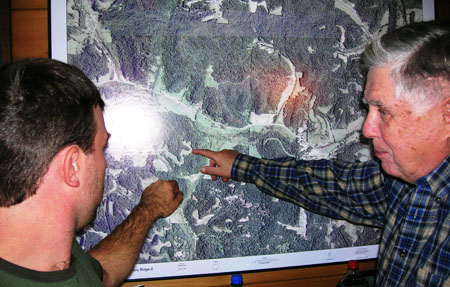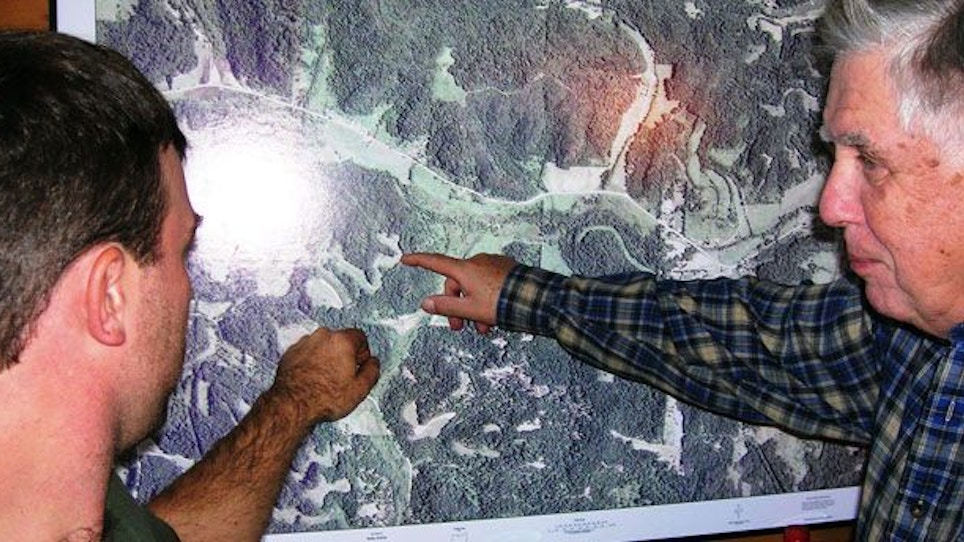Quality Deer Management Cooperatives
Think about this: What if all your neighbors, every one of them, practiced quality deer management? Frequently I hear hunters fussing about shooting too many does on a property, but the fact is that you only need enough does to replace the deer lost via hunting and other mortality during the year. So if you shoot 10 bucks on a property and another two or three will be lost from non-hunting mortality, you only need enough does to replace those 13 bucks. If your habitat is good, the does will have  twins, and the sex ratio of fawns is 50-50. This means that you need 13 does to replace those 13 bucks lost — if you want to be on the safe side, let's say 15 does. To put it bluntly, any does beyond that number are excess does that are eating buck food. That is a simplification, but it is accurate. Fewer does will improve the habitat for bigger bucks.
twins, and the sex ratio of fawns is 50-50. This means that you need 13 does to replace those 13 bucks lost — if you want to be on the safe side, let's say 15 does. To put it bluntly, any does beyond that number are excess does that are eating buck food. That is a simplification, but it is accurate. Fewer does will improve the habitat for bigger bucks.
So, if you don't have a huge tract of land, and you want better control of the deer that use it, then warm up to your neighbors, invite them over for a covered-dish dinner and talk about forming a cooperative. They won't all join. Say you have four neighboring properties and only one joins the cooperative. Only one understands that all hunters have to stick to the rules and shoot lots of does while passing on yearling bucks. Only one of your neighbors understands that it might take up to five years to see some good results, and he is willing to do what is necessary to make it work.
When you and that neighbor start to harvest bucks the likes of which have not been seen in that area for years, your other neighbors might experience a change of attitude. At that point, invite your neighbors to another sit-down and let them know you still want them in the cooperative.
Hunting cooperatives have one other very positive quality. If everyone sits down and maps out a strategy, then you can manage the habitat better for all. You and your neighbors can all create sanctuaries, put in food plots and even strategize on timber harvests. The positive results will reveal themselves within a few years. Cooperatives are a win-win for everybody. Forming one isn't easy, but nothing that's worth anything ever is.
Editor's Note: For more information on hunting cooperative, go to the Quality Deer Management Association.






